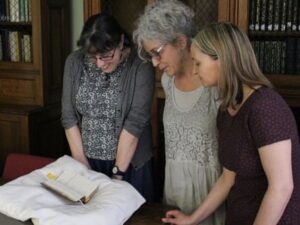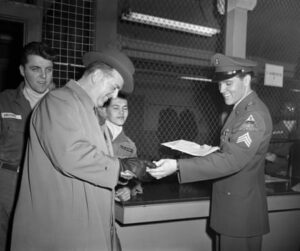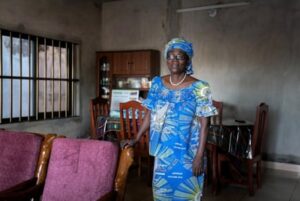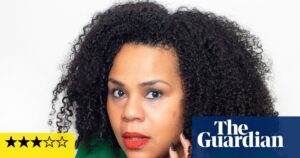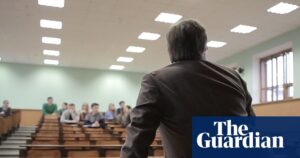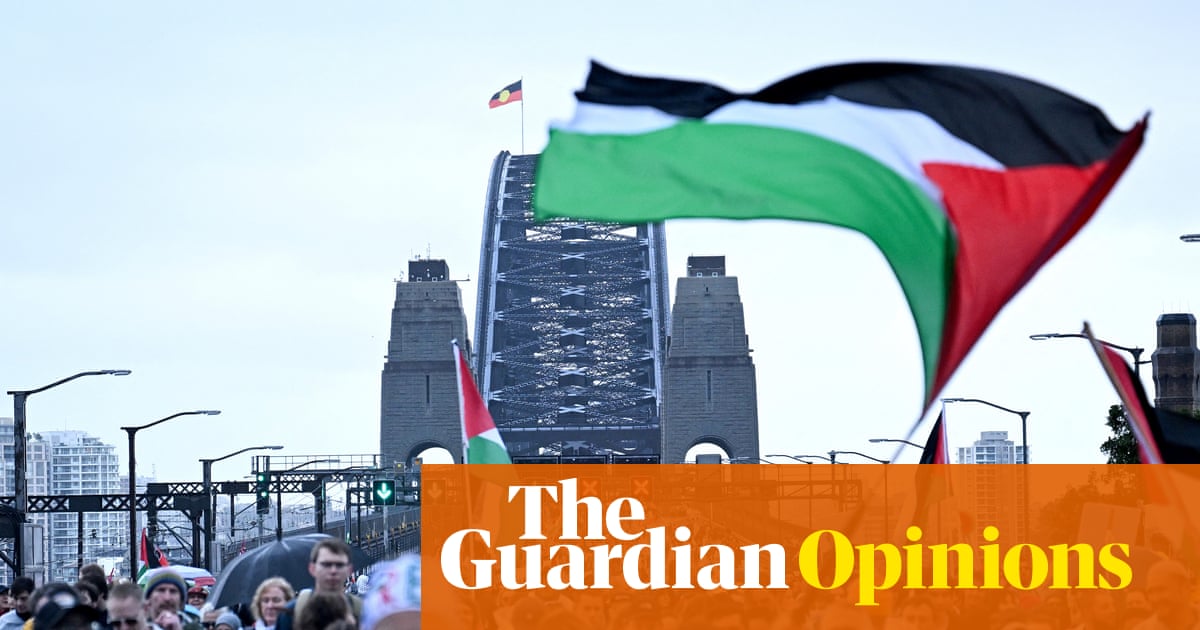
The rain couldn’t stop us. At least 100,000 people took over the CBD and marched across Sydney’s Harbour Bridge to protest Israel’s continued genocide in Gaza. And it felt like a collective wave of energy, hope and determination against institutional and governmental intransigence, denial, obfuscation and enabling that has so many of us feeling despairing, disgusted and disquieted.
Why aren’t they listening? How is this horror continuing unabated with impunity? Why won’t Australia impose sanctions and call for arms embargos against Israel’s senseless murder of civilians, unleashed by some of the most methodical and lethal autonomous weaponry on Earth and AI machines directing bombs, as claimed by intelligence sources?
As doctors, aid workers and social media feeds document the livestreamed ruins of cities, we watch the killing of children, people killed in tents while sleeping, starving people fired upon and killed at aid stations, forced by their hunger to play Russian roulette with their lives.
Sixty thousand human souls, around half of them women and children, dead and tens of thousands more maimed, injured without mercy or relief. Twenty one months of a nightmare for Palestinians that beggars belief.
A year of protests on Sundays at Hyde Park fountain feels like secular church to me, group therapy where I meet with my Readers Against Genocide group, listen to Palestinian leaders and collectively bang pots, grieve and wonder why some weeks the protests feel smaller than others. We lament colleagues doxed, fired, threatened, stripped of funding, forced to resign.
Sign up: AU Breaking News email
As Israel breaks new records in the number of journalists killed –at least 225 Palestinian journalist witness bearers, according to the Palestinian Journalists Syndicate – we try to brace ourselves against a growing climate of fear and intimidation prevailing in Australian arts, media and academia, where Orwellian tone policing codes dominate. It’s not the killing, but speaking out and protesting against these violations, and the manner it is done, that is absurdly surveilled and seen as a source of harm and violence, and is met with censure and punishment.
Sunday felt different. The whole city turned up, not just students and activists, but middle class grandmothers and parents with prams. What was most striking were the children. Parents with toddlers astride their shoulders, holding little ones gently by the hand as they stood patiently in raincoats in the crowds, or cradling their small sleeping heads on their shoulders, holding signs, all saying the same thing: killing and starving children, children just like ours, is wrong and we do not consent.
We do not consent to New South Wales premier Chris Minns’ beefed up protest laws that presaged former Greens candidate Hannah Thomas allegedly being punched in the face, leaving her at one stage at risk of being blinded in one eye. We do not consent to a vast population being killed by starvation and malnourishment as Israel deliberately blocks plentiful supplies of life-saving food and aid.
For the first time in two years, I felt like I was in the majority. It also gave the majority a picture of what these maligned and villainised protests really are: peaceful, powerful, loving declarations of freedom and democracy in action.
As police helicopters buzzed overhead, and police text messages and speaker phones blasted messages that the bridge opening to the north was now blocked and to go back, it felt like a divide was both breached and dissolved. In a city of wealth divided – geographic, cultural and economic – where your postcode can determine your future, it felt like there was no more wealthy, white east, ethnic west, Shire south or privileged north. There was just a collective us.
Emboldened and peaceful crowds kept calm through the confusion, moving with strength and power like a colourful cloud of umbrellas over this harbour city. There was no stopping this tide, and it’s a message that our governments, media and arts leaders need to take heed of: they can no longer isolate and censure the dissenting voices in their ranks, because behind them swell millions.
Sarah Malik is a journalist and author of Desi Girl: On Feminism, Race, Faith and Belonging and Safar: Muslim Women’s Stories of Travel and Transformation

